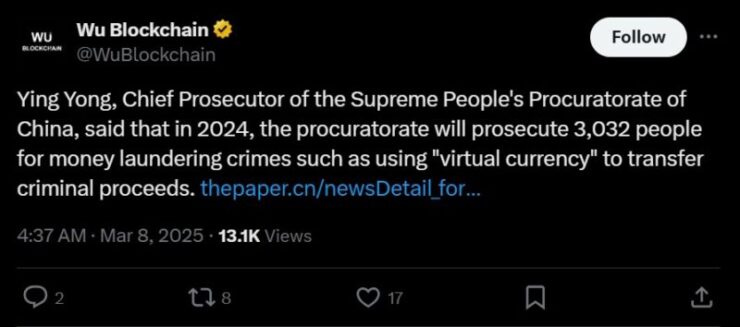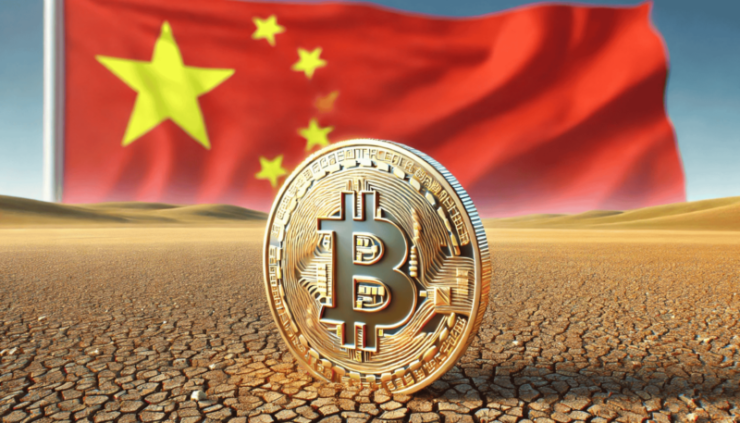China has intensified its crackdown on cryptocurrency-related money laundering, arresting thousands of individuals involved in illicit financial activities. The latest wave of arrests follows a series of high-profile investigations targeting underground banking networks that have used cryptocurrency to launder billions of yuan.
Authorities claim these networks exploit the pseudo-anonymity of digital assets to move illicit funds across borders, evading traditional financial oversight. With Beijing’s firm stance on restricting crypto activities, the recent crackdown signals an even more aggressive regulatory approach.
According to official reports, law enforcement agencies have taken action against more than 3,000 individuals suspected of using cryptocurrency to launder illicit proceeds. Many of these individuals are believed to be part of sophisticated operations that convert illicit cash into digital assets before transferring them across jurisdictions.
Chinese regulators have repeatedly warned against the misuse of crypto for illegal financial activities, but this latest enforcement push is one of the largest in recent years. The report states that In 2024 alone, around 25,000 people were arrested for financial crimes, and at least 825 individuals faced prosecution for securities offenses like financial fraud and insider trading.

One notable case took place in Jilin province, where authorities arrested six individuals accused of laundering an estimated 2.14 billion yuan (approximately $296 million) through cryptocurrency transactions funneled to South Korea. Investigations revealed that the suspects operated an underground exchange, converting large sums of money into digital assets to obscure financial trails.
Internationally, similar enforcement actions have taken place. In the United States, two Chinese nationals were arrested on allegations of laundering $73 million through shell companies linked to cryptocurrency investment fraud. These developments point to a broader, global effort to clamp down on the illicit use of digital currencies in financial crime.
China’s Crypto Crackdown and the Global Ripple Effect
Beijing’s strict stance on cryptocurrency is not new, but the scale of this latest crackdown suggests an increasing determination to control financial risks associated with digital assets.
China officially banned cryptocurrency trading and mining in 2021, yet underground markets have continued to thrive, fueling illegal transactions and financial crimes. Authorities argue that cryptocurrency remains a key tool for capital flight, tax evasion, and money laundering—threats that Beijing has long sought to eliminate.
The crackdown aligns with a broader global trend of heightened scrutiny on crypto transactions. In the Philippines, authorities recently arrested over 400 individuals linked to crypto-related online scams, while in Europe, law enforcement agencies have launched extensive investigations into illicit digital finance networks. Governments worldwide are ramping up their efforts to establish stricter oversight, emphasizing compliance, and enforcing anti-money laundering (AML) regulations on crypto exchanges and digital asset service providers.
China’s aggressive crackdown on cryptocurrency-related financial crimes has historically influenced global market trends. The country’s past restrictions on mining and trading sent shockwaves through the industry, contributing to price fluctuations and shifts in mining activity to more crypto-friendly jurisdictions.
Quick Facts:
- Chinese authorities have arrested over 3,000 individuals involved in cryptocurrency-related money laundering.
- A case in Jilin province exposed a $296 million laundering scheme using crypto transactions.
- The crackdown is part of a larger global push to curb illicit financial activities using digital assets.





